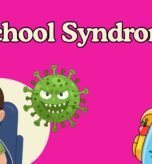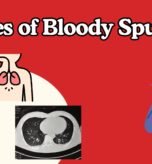Tips to Prevent Foreign Body Aspiration in Children
Foreign body aspiration is a preventable condition with proper precautions and awareness. Here are some practical tips for parents and caregivers to minimize the risk:
1. Supervise Mealtime Closely
- Always monitor young children while they are eating.
- Ensure children sit upright during meals rather than walking, running, or lying down while eating.
2. Avoid High-Risk Foods
- Do not give hard, small, or round foods to children under 4 years old. These include:
- Nuts (almonds, peanuts, cashews)
- Fruits containing seeds
- Popcorn
- Hard candies
3. Keep Small Objects Out of Reach
- Store small items like beads, coins, buttons, batteries, and small toy parts in secure places, away from children.
- Regularly check your home for potential choking hazards, especially in play areas.
- Avoid toys with detachable small parts, magnets, or loose button
4. Never Leave your Toddler Unattended
- Children tend to explore new things with their mouths. Do not leave your child unsupervised.
- Children with PICA are at increased risk of Foreign Body Aspiration.
5. Educate Older Siblings
- Teach older children about the dangers of giving small items to younger siblings.
- Encourage them to keep their toys with small parts in areas that younger children cannot access.
6. Learn Basic First Aid
- Familiarize yourself with the Heimlich maneuver and CPR for children so you can act quickly if your child chokes.
- Enroll in a basic first aid class to feel confident in managing emergencies.
- Rush to a hospital if your child has choking followed by cough.
7. Prevent Accidental Inhalation During Play
- Discourage children from putting objects in their mouths while playing.
- Teach children to avoid blowing small objects (e.g., whistles, party horns) into their mouths.
By staying vigilant and following these preventive measures, you can significantly reduce the risk of foreign body aspiration and keep your children safe.
If an incident occurs, knowing the symptoms and acting promptly can make all the difference. Report to a hospital that has pediatric Pulmonology services or contact a pediatric pulmonologist for early intervention.




